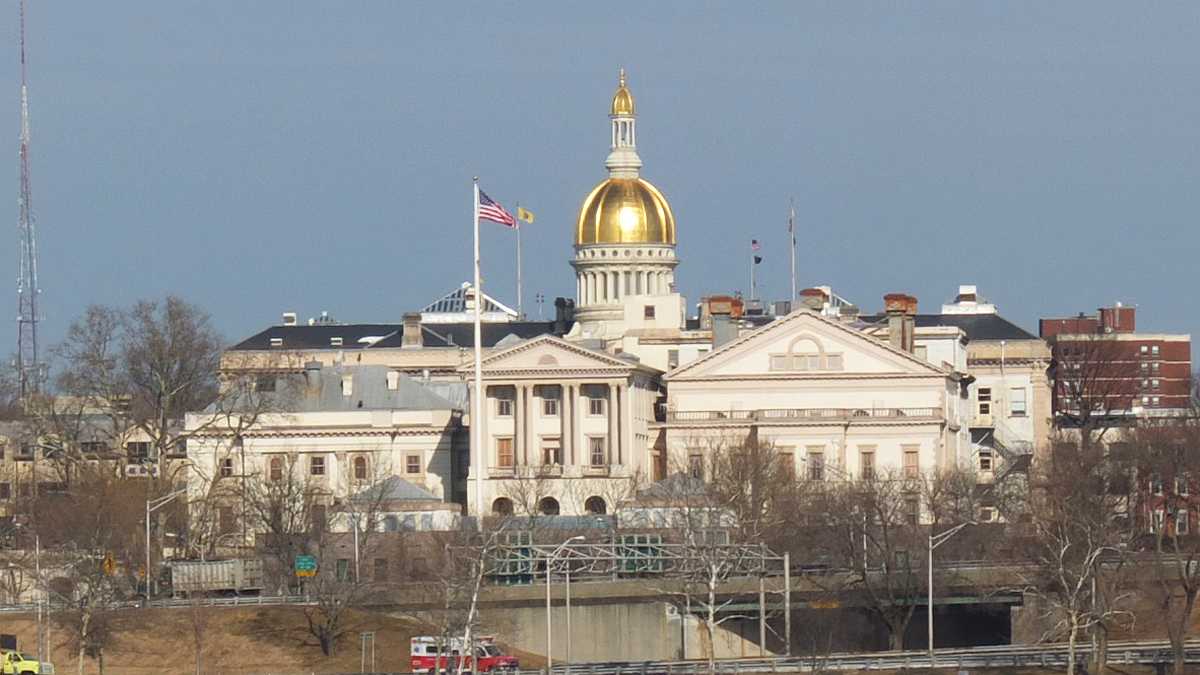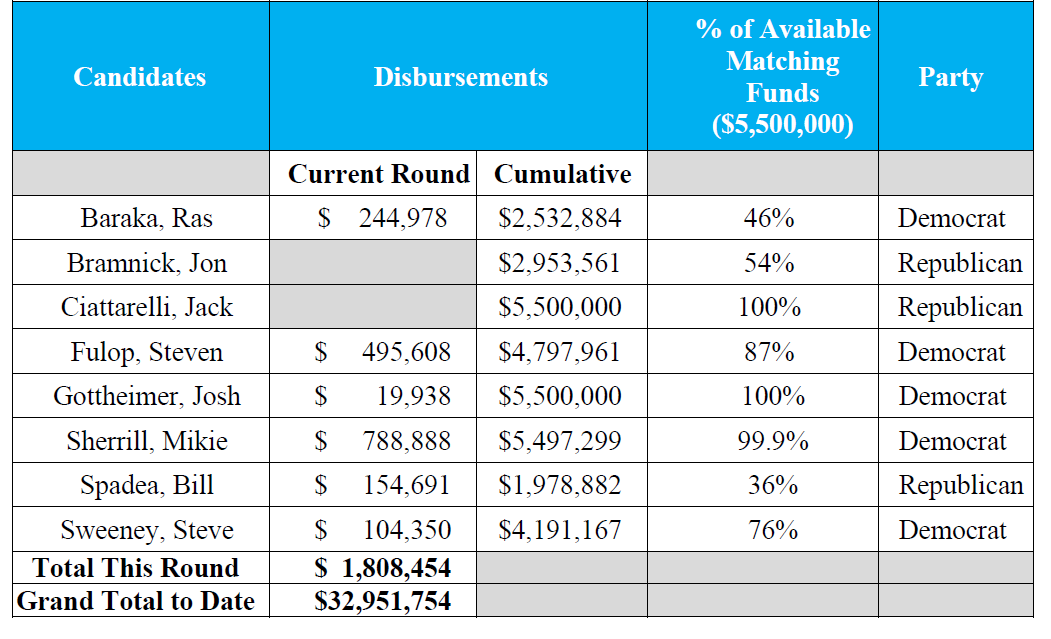
With one election over and another a year away here in the Garden State, there are a number of political figures vying for the governorship in 2025. The problem is, New Jersey voters don’t know who they are, according to the latest Rutgers-Eagleton Poll.
“Given that next year’s gubernatorial has no incumbent and no clear front-runners yet, large majorities of voters do not know or have opinions on any of the declared or potential candidates,” said Ashley Koning, an assistant research professor and director of the Eagleton Center for Public Interest Polling (ECPIP) at Rutgers University-New Brunswick. “On either side of the aisle, no candidate is viewed favorably by more than one in five voters, and at least half of voters do not take sides on any of the candidates we asked.”
On the Democratic side, 16% percent view Newark Mayor Ras Baraka favorably, 11% unfavorably, and 21% have no opinion; 51% don’t know who he is. Twelve percent of voters view state Senate President Steve Sweeney favorably, 19% unfavorably, 25% have no opinion and 44% don’t know who he is.
Nine percent of voters are favorable toward Jersey City Mayor Steve Fulop, 9% are unfavorable, 22% have no opinion and 60% don’t know who he is. Seven percent view Sean Spiller, president of the New Jersey Education Association, favorably, another 7% unfavorably, and 21% have no opinion; 65% don’t know who he is.
Rumored candidate U.S. Rep. Mikie Sherrill receives the most favorable ratings: 19% view her favorably, 8% unfavorably and 20% have no opinion; 53% don’t know who she is. U.S. Rep. Josh Gottheimer, also a rumored candidate, receives 15% favorable, 8% unfavorable and 21% have no opinion; 56% don’t know who he is.
It’s a very similar picture on the Republican side: Candidates lack awareness from a majority of voters, including the 2021 Republican gubernatorial nominee, and no candidate is viewed favorably by more than 1 in 5 voters.
Former assemblyman and 2021 Republican gubernatorial candidate Jack Ciattarelli receives the most favorable ratings: 20% of voters view him favorably, 16% unfavorably, 23% have no opinion and 41% don’t know him.
Nine percent view radio host Bill Spadea favorably, 12% unfavorably, 18% have no opinion and 60% don’t know who he is.
Seven percent give state Sen. Jon Bramnick a favorable rating, 5% unfavorable and 20% have no opinion; 68% don’t know who he is.
“The field vying to succeed Gov. Murphy is already large and likely to grow even more,” said Kristoffer Shields, director of the Center for the American Governor at Rutgers University-New Brunswick. “Name recognition will therefore be crucially important. As the number of candidates rises, so does the risk of getting lost in the sea of names. Candidates will need to act quickly to introduce themselves to voters and separate themselves from the pack as the June primaries will be here before we know it.”
When it comes to the current governor, more than half of voters (55%) approve of the way Gov. Phil Murphy is handling his job, while 36% disapprove. The governor garners similar numbers on favorability – 50% favorable versus 34% unfavorable. Murphy’s approval haven’t significantly changed from where they were about a year ago, when he had 56% approval among registered voters and 46% favorability 46% among registered voters.
Partisan patterns hold steady on the governor’s approval and favorability, too. Democrats are much more likely to approve of (82%) and give favorable ratings to Murphy (76%), independents are split on both approval (45% approve versus 42% disapprove) and favorability (37% favorable versus 39% unfavorable), and Republicans largely disapprove of Murphy (68%) and give him unfavorable ratings (66%).
New Jersey voters are split on their outlook of the state: 45% say it is “currently going in the right direction,” while 46% say it has “gone off on the wrong track;” 9% are unsure.
Typical partisan patterns hold consistent. While most Democrats say the state is headed in the right direction (72%), more than half of independents (53%) and 8 in 10 Republicans (80%) say it has gone off on the wrong track.
“Voters are a bit more mixed about the direction of the state than they were a little less than a year ago,” said Jessica Roman, director of data management and analysis at ECPIP. “Last December, voters were more negative than positive – 48% ‘wrong track’ to 43% ‘right direction’ – about New Jersey. Even though this margin has narrowed, however, there really hasn’t been a significant shift in either direction on outlook since September 2022.”
Results are from a statewide poll of 1,018 adults contacted through the probability-based Rutgers-Eagleton/SSRS Garden State Panel from Oct. 15 to Oct. 22. The full sample has a margin of error of +/- 4.1 percentage points. The registered voter subsample contains 929 registered voters and has a margin of error of +/- 4.2 percentage points.
###
(Visited 128 times, 128 visits today)
With the New Jersey gubernatorial election just one year away, a recent survey has revealed that many voters in the state are still unaware of the candidates who will be vying for the top political office. According to Insider NJ, a leading political news website in the state, the lack of awareness among voters could have significant implications for the outcome of the election.
The survey, conducted by a reputable polling firm, found that a majority of New Jersey voters were unable to name any of the candidates running for governor in the upcoming election. This lack of awareness is particularly concerning given the importance of the gubernatorial race in shaping the future of the state.
One possible explanation for this lack of awareness is the fact that the election is still a year away. With so much time remaining before voters head to the polls, many may not yet be paying close attention to the candidates and their platforms. However, as the election draws closer, it will be crucial for candidates to ramp up their efforts to connect with voters and make their voices heard.
In addition to raising awareness among voters, candidates will also need to work hard to differentiate themselves from their opponents and make a compelling case for why they are the best choice to lead New Jersey. Issues such as education, healthcare, and the economy are likely to be top priorities for voters, and candidates will need to articulate clear and effective plans for addressing these key issues.
As the election season heats up, it will be important for voters to educate themselves about the candidates and their positions on important issues. By staying informed and engaged in the political process, New Jersey voters can ensure that their voices are heard and that they play a meaningful role in shaping the future of their state.



